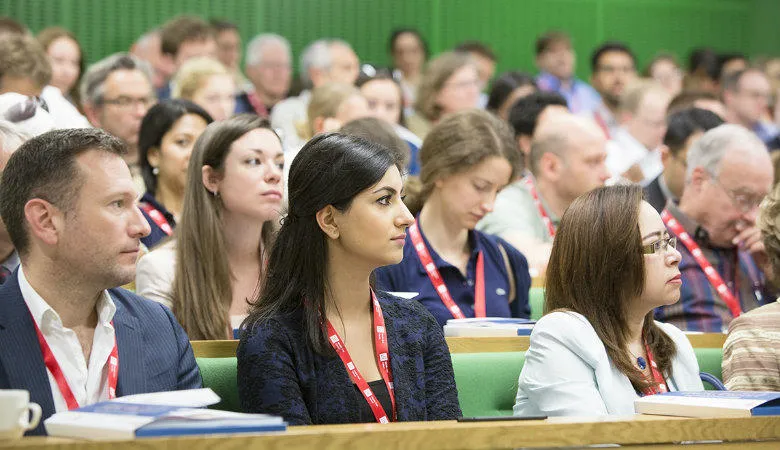08 June 2018
Our Academics to speak at the annual British Society for Middle Eastern Studies (BRISMES) conference
Our Academics to speak at BRISMES

The annual British Society for Middle Eastern Studies (BRISMES) conference will take place at King’s College London from 25 – 28 June 2018 and will be hosted by the Department of Middle Eastern Studies (School of Politics & Economics, King’s College London).
The Department of Middle Eastern Studies is a world-leading centre of research and teaching on the Middle East and North Africa. The department’s academics, who are committed to engaging in cutting-edge debates, come from a wide range of disciplinary backgrounds. Below is a preview of some of the fascinating research by DMES academics to be showcased at BRISMES 2018.
-
Dr Michael Farquhar will discuss research from his paper Policing Infitah: Economic Liberalisation, Security and Social Order in Egypt in a panel discussion on Rethinking Liberalisation: State Strategy and Popular Contestation in Sadat’s Egypt.
His paper argues that economic liberalisation during the 1970s in Egypt impacted how Egyptian police officers framed questions of security, social order and crime control. Dr Farquhar carried out his research by looking at a decade worth of writings from an Egyptian police journal, where senior Egyptian police officers discuss matters of crime, security and the economy.
Dr Farquhar’s inspiration for this research stems from an existing body of literature that explores how policing and crime control fit into the politics of neoliberalism. However, he points out that this literature focusses solely on Europe and North America and suggests that ‘neoliberal penalty’ (an emphasis on the need for a state to secure society though policing and prisons) was forged in the United States. He points out that this literature doesn’t explain how these dynamics operate in other parts of the world, and thereby attempts to fill in this knowledge gap.
-
Dr Hicham Safieddine will discuss his paper in progress provisionally titled Post-WWII Arab Economic Thought: Liberalism, Nationalism and the Technocratic Imperative in a panel discussion on Arab Economic Thought: Histories and Horizons. Dr. Safieddine organized the panel to bring together scholars working on related questions of economic history in the Arab world.
In his paper, Dr Safieddine points out that post-WWII state building in newly independent Arab countries led to increased transnational intellectual exchange, which spanned Cairo, Baghdad, and Beirut Khartoum. He proposes that having a nuanced understanding of these intellectual networks and the philosophy behind them will shed light on how global thought shapes and is shaped by local and regional contexts.
Dr Safieddine specifically argues that economists and technocrats such as Said Himadeh, Burhan Dajani and Abdallah Tariqi were transformers, rather than mere transmitters, of global currents of economic thought. Their models of economic development addressed the specific challenges of state building under the banner of Arab and Lebanese nationalism such as the transnational distribution of oil revenues, state financial regulation in underdeveloped money markets, and pan-Arab economic integration.
His conclusions are based on archival research of US diplomatic cables, correspondence records of the Ford Foundation, as well as a detailed survey of the writings of the scholars under study.
-
Professor Jonathan Hill will discuss his research on Global international relations and the Arab Spring: the Maghreb’s challenge to the EU in a panel discussion on The International and the Construction of Ideational Internal Frontiers.
Professor Hill’s paper contributes to the Global International Relations project by critically evaluating the roles that Steven Levitsky and Lucan Way attribute to Europe and the EU in their model for explaining regime transitions – which suggests that a regime’s proximity to Europe determines whether it democratises or remains authoritarian. The paper focusses on Levitsky and Way’s international dimensions of linkage and leverage to assess the normative and geopolitical underpinnings of their thesis.
Professor Hill looks at the cases of the North African countries of Tunisia and Mauritania – which are close to Europe and were once colonised by France – at the start of the Arab Spring. He concludes that the EU’s failure to discipline the competitive and authoritarian regimes of these two countries raises questions about the validity of the privileged role in which Levitsky and Way cast Europe.
-
Dr Neil Ketchley is presenting two papers at BRISMES. The first, co-authored with Thoraya El-Rayyes (LSE), explores how exposure to protest shaped people’s attitudes to democracy during the post-Mubarak transition in Egypt. Matching a representative survey with geo-referenced event data, Dr Ketchley and his team find that Egyptians living in districts with more protest were more likely to associate democracy with socio-economic threat and instability. A second paper, co-authored with DMES colleagues Jeroen Gunning, Ferdinand Eibl, and Michael Farquhar, uses data from Arabic-language newspapers to provide the first systematic account of the 1977 Bread Intifada in Egypt.
BRISMES 2018 Schedule:
A full list of topics can be viewed on the 2018 BRISMES conference schedule here. The department looks forward to hosting all BRISMES participants and taking part in discussion with members of its academic network.
